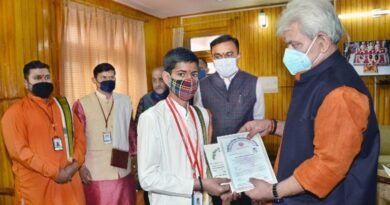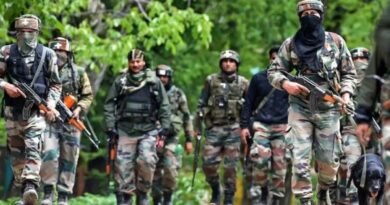Dialogue only way to forward to peace in Kashmir: speakers during seminar in Srinagar
Srinagar, Dec 31: South Asia Peace Movement Sunday held a one day convention titled “Dialogue— Only a way forward to peace.”

Speakers include prominent politicians, lawyers, social activists and intellectuals.
Speaking on the occasion, Awami National Conference said that local leadership in J&K has to be united and make collective effort to establish peace in Kashmir.
Shah quoted various past references and sad how political leaders have never represented the aspirations of people of J&K before Delhi. He added that state legislative assembly enjoys special powers wherein it can bring the enforcement of Armed Forces Special Powers Act to an end.
“AFSPA has been made applicable in J&K after it was declared as disturbed area. The state assembly can pass a bill and declare that Kashmir is not more a disturbed area. Thus, the applicable of AFSPA will automatically come to an end,” he said.
Shah said that youth of J&K must come forward and make mainstream political leaders accountable. “We cannot repeat the mistakes of choosing wrong leaders and then complaint after few months they are not capable. Let the youth come forward and take responsibly for positive change. AFSPA has to go. That is the way forward,” he added.
Renowned social activist Inam un Nabi said that dialogue is the only way forward to resolve any issue.
He added that the report prepared by J&K Police reveals many things which need to be taken up for consideration.
“A 74-page confidential report — based on a detailed study conducted by the J&K Police’s Criminal Investigation Department (CID) — has profiled local youths in the Valley who have become militants,” he said.
He added that the report has also debunked the traditional understanding of Kashmir’s militancy and sought a rethink. “One noticeable outcome of this study is that this wave of fresh recruitments is not based or driven by ideology as the surge is only seen in South Kashmir and there too in identifiable areas. If it would have been ideology driven, then pan-Kashmir footprints would have been seen,’’ he said while quoting the report.

Titled “Radicalisation and Terrorism in J&K — A Study”, the CID says that the aim of the study was “to gauge the existence and extent of radicalisation in the youth of Kashmir”. The report is based on an elaborate study of “156 local youths of the Valley who have joined militancy between 2010 and 2015”.
Quoting report, he said: “it is often believed that a militant is a victim of state action, or simply placed, a youth is forced to join militancy by the state actions. Only in the 20 per cent of the cases, it emerged that they (militant recruits) had been previously allegedly harassed by security forces.”
He said that the way forward for peace is to all must join heads and hands. “There is no way except a sustained dialogue to establish permanent peace,” he said.
Social activist Abida War said that in past three decades, women in Kashmir have suffered the most. “We need to empower women,” she added.

All the speakers condemned the desecration of Srinagar Jamia Masjid, waving of ISISI flags and urged authorities to unveil the faces behind this act.
South Asia Peace Movement chairman Tariq Bhat in his vote of thanks, impressed up on youth to come forward bring positive change in society.
Bhat said that traditional political parties have always exploited people and new faces from youth need to be introduced in politics for effective leadership.




